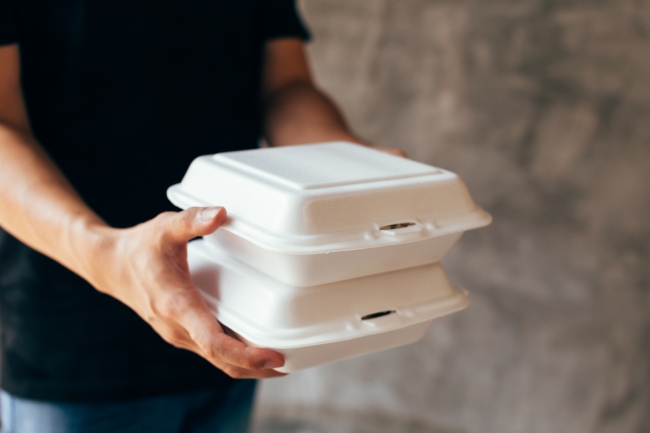You have /5 articles left.
Sign up for a free account or log in.

Institutions look to combat food waste and food insecurity on campus by connecting community members to free meals.
twinsterphoto/iStock/Getty Images Plus
Many institutions offer basic needs resources for students facing challenges in affording or accessing necessities like food or housing, impacting student retention and overall success.
Inside Higher Ed collected three examples of college food pantries breaking barriers to access and supporting students facing food insecurity with innovative ideas.
Nudges for free food, University of California, Irvine
The University of California, Irvine, established a text-based notification system for students to stop by a catered event after it’s over to pick up free food.
The program, called Zot Bites, is an initiative from the UCI Basic Needs Center. It is available to all currently enrolled UCI students with a valid phone number.
Students receive a text message detailing what kind of food is available and its location. Food is available to postevent guests on a first-come, first-served basis for a limited time, eliminating food waste and expanding access to free hot meals on campus.
Refrigerated lockers, Bunker Hill Community College
Bunker Hill Community College’s food pantry added refrigerated self-serve lockers in a hallway outside the pantry, which creates after-hours access for students without expanding staffing resources.
To be eligible for pantry pickup, students fill out the DISH Intake form, verifying their affiliation with the college and providing some demographic information. After, students receive a username and PIN to order items online through the portal SmartChoice.
Online, students can shop through fruits, vegetables, dairy, proteins, grains and hygiene products. Students receive 35 points, representing items available for purchase, per month to shop and can make up to three orders each month.
After completing their order, students designate a pickup day and time, and a pantry coordinator will call or text to confirm the order on the selected day to provide instructions to use the lockers. The lockers function similarly to an Amazon locker pickup, with each student having a unique code that opens the respective box slot.
Food waste recovery, University of West Georgia
Wolves Don’t Waste, the University of West Georgia’s chapter of the Food Recovery Network, saves food from on-campus dining vendors to be redistributed among the campus community. Wolves Don’t Waste unites student and faculty volunteers to collect food after campus events and at the close of dining halls to store in designated recovery refrigerators, Wolf Haven, located in the campus center
While all of the Food Recovery Network campus chapters collect and redistribute food to those facing food insecurity, Wolves Don’t Waste keeps food on campus—filling the stomachs of its own community, rather than transporting meals to outside food banks. The UWG chapter collected 250 pounds of food in March 2023 alone.
The refrigerators are available to all students, faculty and staff members in the campus center and are packaged, sealed and marked with best-used-by dates. A microwave and silverware are available in a nearby building, as well.
What is a unique way your institution is meeting basic needs insecurity? Click here to submit.








